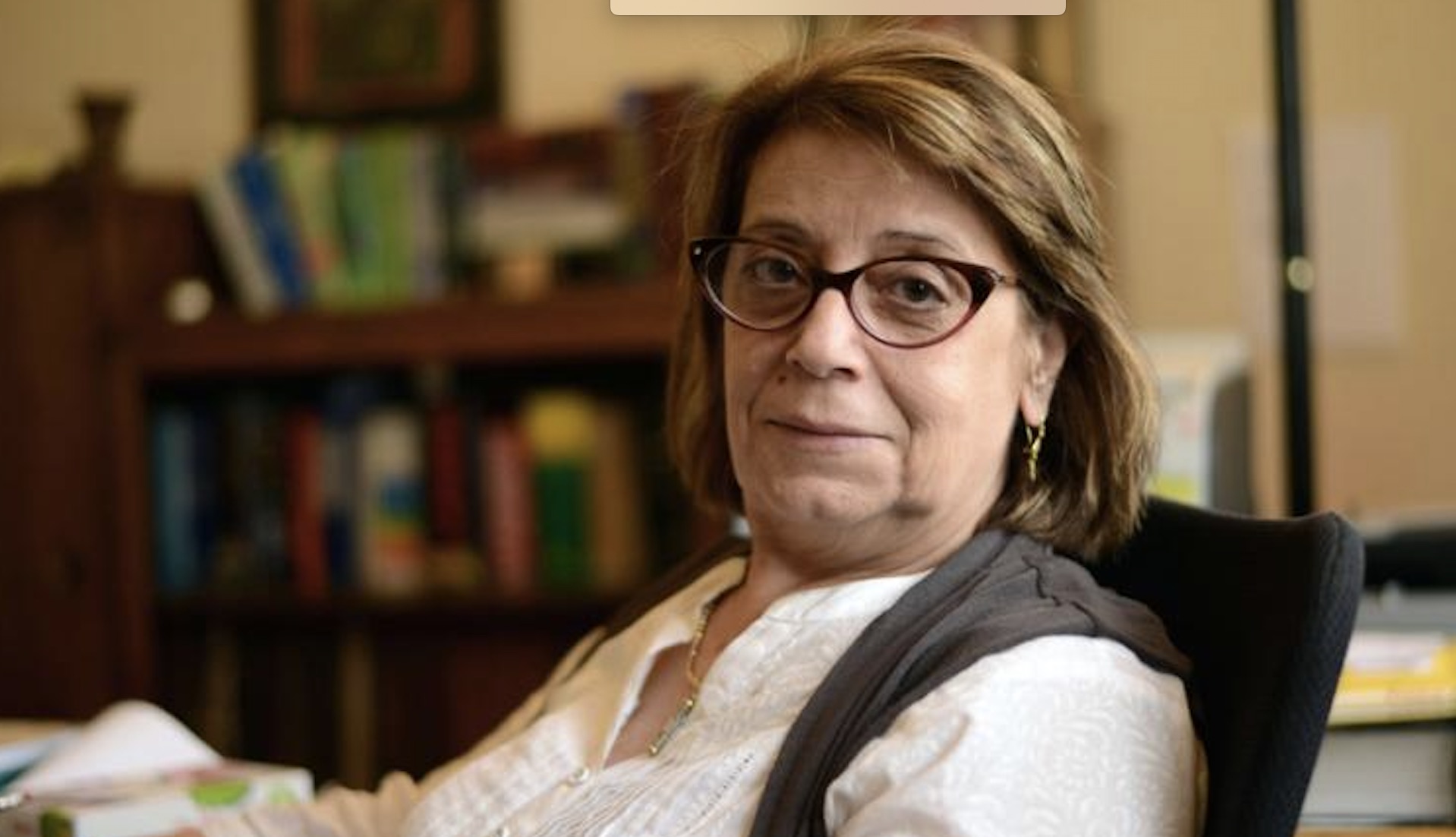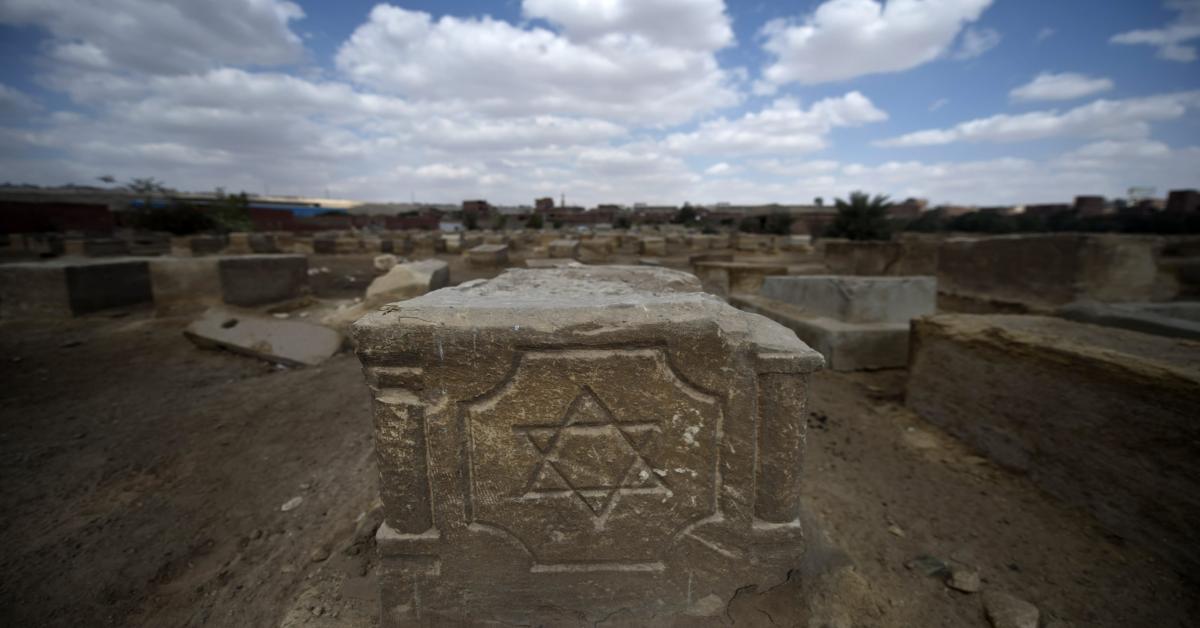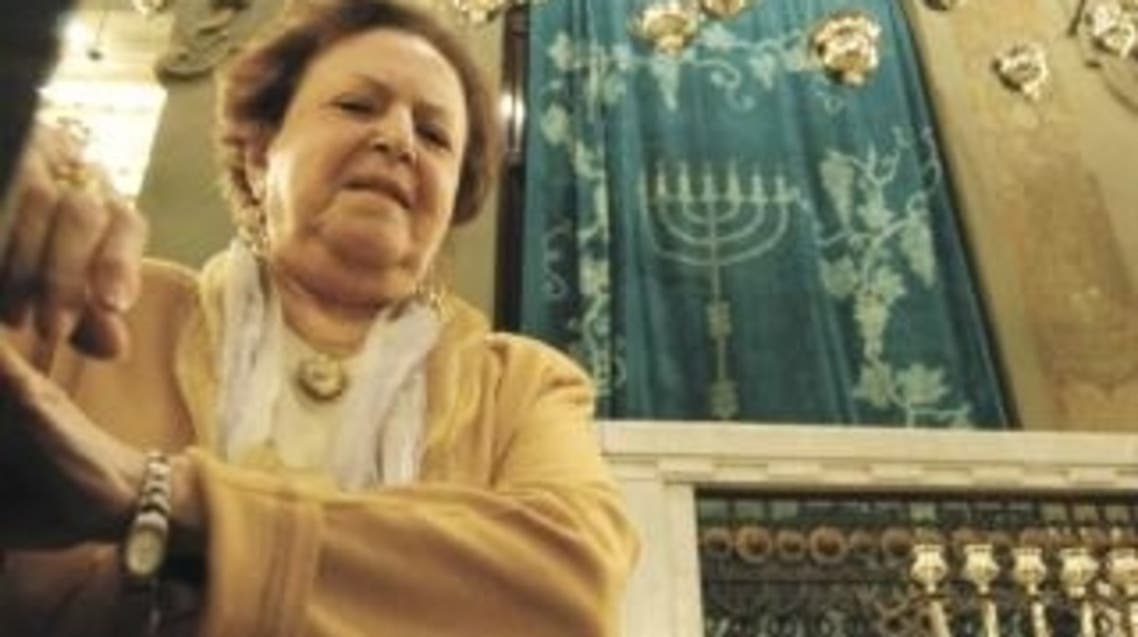Courageous, tireless, and loyal was Carmen Weinstein, the former leader of Egypt’s dwindling Jewish community. Weinstein fought the good fight of faith – she is remembered as the “iron lady” of Egypt’s Jews who stood against the forces of history that sought to brand them as forgotten.
Weinstein was born in 1931 into an Egyptian family, presumably during the last of the golden days for Egyptian Jewry. The first half of the 20th century in Egypt is known as the ‘golden age’ for Judaism in Egypt because of the large Jewish population that was situated in Egypt; Jews were integrated into society as merchants, bankers, artists, and professionals. They excelled in medicine, served at Court of Rules, and engaged in crafts such as textile dyeing.
Cairo was the center of Jewish life in Egypt, the Jews in Egypt were primarily situated in Ḥārat al-Yahūd, or the Jewish quarter in what is now Cairo’s old center, although they also settled down across Alexandria and Cairo as a whole.
Following the massive Jewish exodus from Egypt in the mid 20th century, the golden age of Judaism in Egypt withered away, and Weinstein’ fight was a difficult one, much like the history of Jews in the region.
Weinstein’s family excelled in their fields, her sister, Glorice, worked as a psychoanalyst in Geneva, and Weinstein took over her father’s print shop when he passed away in 1953.
By the mid-20th century, the Jewish community numbered roughly 80,000. According to some sources, Egyptian Jewry was among the world’s most diverse Jewish communities as it consisted of Jews from all ethnic backgrounds and denominations, with a particularly strong lineage from the Levant and the south of Europe.
However, the city which was once dotted with a flourishing Jewish community became hostile ground: in the mid-20th century, Jews were labeled as ‘zionists,’ and deemed enemies.
The Arab-Israeli war in 1948 was the start of the Jewish exodus from Egypt. After former president Gamal Abdel Nasser consolidated power, Jews began “leaving” Egypt in large numbers due to his mounting nationalistic sentiments that left them in fearful.
Swept under the pretense of politics, Jews in Egypt found themselves “expelled,” to France, the United Kingdom, with few making way to the newly created state of Israel at the time. As a byproduct of the Arab-Israeli war of 1948, Egypt’s Jewry became sidelined and secluded.
Nonetheless, Weinstein was an ardent patriot, and refused to flee from Egypt like many did.
After the Jewish exodus from Egypt in the 1950s, Weinstein devoted herself to protecting Jewish heritage in Egypt. She was adamant to keep alive what was left of the once large community by encouraging and supporting communal ties.
Politically, Egypt shunned the Jewish community, but Wesinten took it upon herself to fight for the preservation of the Jewish synagogues and heritage sites which immortalized the community.
“She was a strong woman. She fought for the safeguarding of the Jewish cemetery and the synagogues,” explained Magda Haroun, the current leader of Egypt’s Jewish community.

Wesintein ensured Jewish artifacts and physical heritage, such as the Sacred Torah scrolls and ancient manuscripts, remained in Egypt. She convinced the Egyptian government to recognize them as artifacts in order to prohibit their sale abroad.

In 1978, she fought to preserve the ancient Bassatine Jewish Cemetery, the only Jewish one left in Cairo and the largest in Egypt.
She continued to fight for what was left of the Jewish legacy, which increasingly became threatened by encroaching neighbors, vandalism, and urban expansion particularly in Jewish-specific sites, despite anti-semetic attacks in Egypt.
In 1996, she spearheaded a change to the bylaws of the Jewish Community Council, which enabled her mother to become the first female president, and Weinstein took over in 2004 when her mother passed away.
On 13 April 2013, at the age of 84, Weinstein passed away; she was buried in the Bassatine cemetery. Her friend and one of the last standing Jews in Egypt, Haroun, was elected to take over the Jewish community.
Weinstein will always be remembered as the last grande dame of a bygone era, an “iron lady,” who remains a true patriot and fighter in Egypt, especially for a now-dwindling part of its population.






Comments (0)